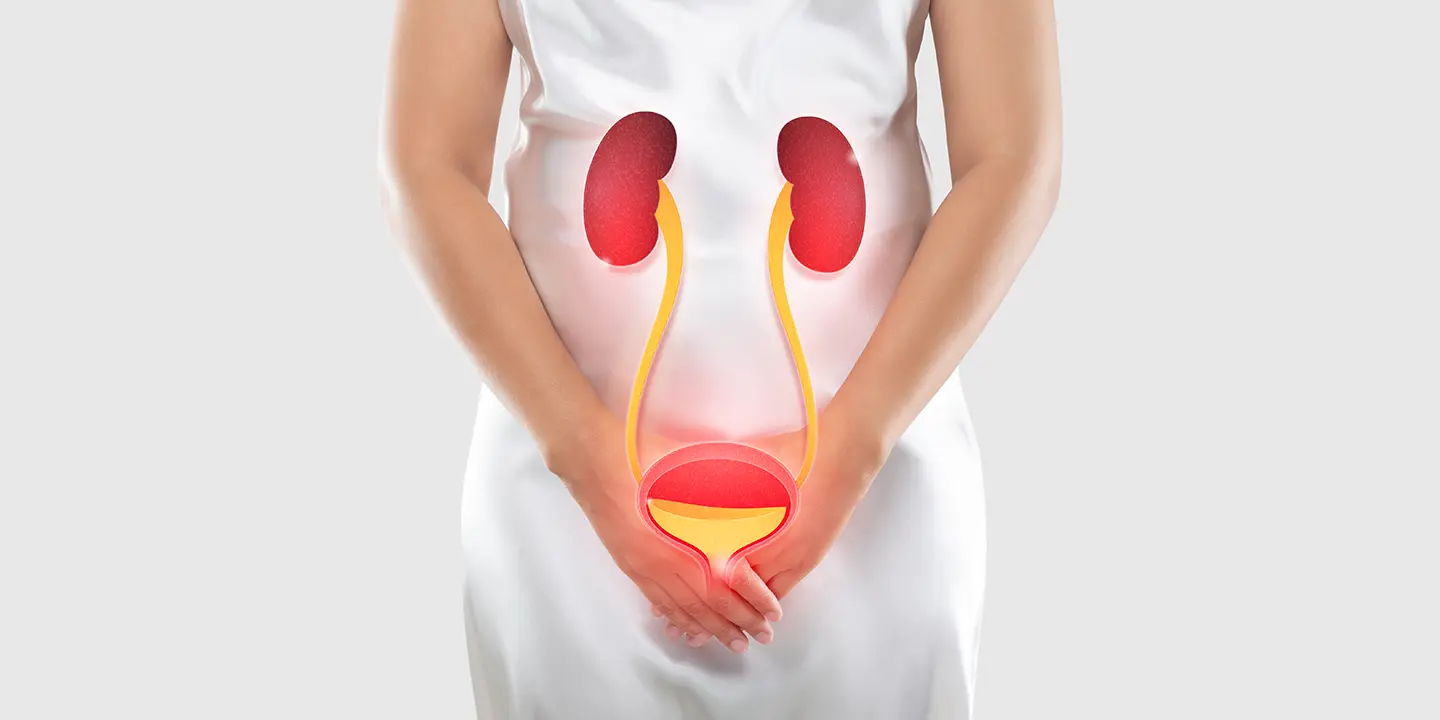
Risk Content- STI occurs due to unprotected sex with multiple partners or a partner who has an infection. The infections under this category specifically get transmitted only through sexual contact. Most sexually transmitted infections are caused by viruses, parasites, or bacteria that are transferred from one person to another through unprotected sexual contact. It passes by blood, semen, and bodily or vaginal fluids. However, the infection or disease is a severe condition that develops after sexual contact. The most common STI symptom is a burning or itching sensation around the vaginal or genital area. You will get relief from hearing that most STIs are treatable and curable following timely detection and the proper medication. But some types of them can be severe.
In this Article
Overview
Undetected STIs can lead to serious health issues like cardiovascular or neurological diseases. It also can cause infertility in some women. Ectopic pregnancy, stillbirth, and increased risk of human immunodeficiency may also happen due to the infection.
Effective STI treatment is necessary to lead an everyday healthy life. However, we need to classify the type of infection before starting the treatment. Effective STI treatments are available in medical science. Research shows that three bacterial and one parasitic STI are curable with a proper course of antibiotics. You need to consult with your gynecologist regarding the treatment and medication. It is a prevalent infection in men and women; hence, no need to worry about it. It is completely curable in most cases. Even though some types of STIs are not curable, various treatments are available for the patients. Schedule your appointment with QUEEN’S gynecologist to know all about the symptoms that are also manageable with medications.
Related Blog – Premenstrual Syndrome (PMS): Causes, Symptoms & Treatment
Symptoms of STI
We can find a series of symptoms of STIs. However, in a few cases, STD symptoms are not present. That is the reason; it may go unnoticed till any complication occurs. Here, we are discussing the signs and symptoms of STD or STI that are usually noticeable like
- Discomfort or unusual pain during sex.
- Abnormal vaginal bleeding in females
- Discharge from the penis
- Bumps or sores in the oral or rectal area
- Abnormal sores on the genitals
- Abnormal odorous vaginal secretion
- Burning urination
- Rashes over the hands, feet, or trunk
- Fever
- Lower abdominal discomfort or pain
- Swollen lymph nodes
The incubation period , which is a time between exposure to STI and the starting of symptoms varies. However some may experience no symptoms at all , but it is best to get tested because you can still pass an STI to partner or can suffer severe comlications Consult your gynecologist without any second thought. QUEEN’s Gynecology will help you with the problem thus feel free to consult our experts to know all about STIs.
Causes of STIs
STIs or STDs are caused by bacteria, parasites, or viruses. We can find many types of bacteria and viruses available like
- Bacteria- Syphilis, Gonorrhea, and Chlamydia are a few examples of STIs that cause by bacterial infection.
- Viruses- HPV, HIV, Genital Herpes, Zika, Hepatitis B, and Cytomegalovirus are examples of virus-affected STIs.
- Parasites- Trichomoniasis is a parasite-infected STI. Scabies mites or crab lice are also examples of parasites responsible for STDs.
Moreover, Hepatitis A and C viruses can spread through sexual contact, but it is also possible to get infected without sexual contact. The same thing applies to Shigella infection and Giardia infection. Hepatitis B and HIV can be spread through blood. HPV, Genital Herpes, and Syphilis are spread mainly by genital skin-to-skin contact.
Transmission Possible From Mother To Infant
Studies show that a few STIs like HIV, Syphilis, and Genital Herpes can pass to infants from their mothers. However, in infants, STIs can be fatal. Thus, all pregnant women must be screened thoroughly for STDs or STIs, and proper treatment should be done.
Types of STIs
Types of STDs and STIs are well known among us. Here, we will discuss bacteria, viruses, and parasite-based infections. The diseases are curable with treatments; hence, don’t ignore them. However, primarily through sexual contact, viruses are passed from one person to another, but sometimes it may happen without sexual contact.
HIV, Genital Herpes, and Hepatitis B can also spread through blood transmission. It can happen in any age group and does not always depend on personal hygiene and healthy sex life. Additionally, we can see that few STIs can spread by non-penetrative sexual activity. Some typical STI list is discussed below,
- Hepatitis B- It is a significant reason for liver damage. It is a long-term infection, and the carrier has the virus in their blood, semen, and other bodily fluids. The virus is transmitted through sexual contact, using non-sterile equipment, and skin puncturing through a sharp object with the presence of the virus.
- Genital Herpes- We can find a viral infection here that affects the genitals, skin, and cervix. One type of Herpes affects the mouth and spreads through saliva. It can bypass the genital region at the time of oral sex. The other type affects the genital area, mouth, and anal portion. Therefore, it is bypassed through anal, vaginal, and oral sex.
- HIV- A sexually transmitted infection that can porgress to a disease called AIDS if left untreated .
- HPV- It directs to viruses that lead to mucus and skin problems. The viruses affect the skin and mucus membranes of the cervix, anus, throat, and mouth. However, it may cause cervical dysplasia that sometimes leads to cervical cancer. Throat cancer is also expected from HPV. Symptoms of the virus are not always apparent. Hence, you need a medical checkup if you notice spotting during sex.
- Syphilis- It is a bacterial infection that may become serious without treatment. Early diagnosis can prevent permanent damage, which can be fatal. Symptoms may disappear in the dormant stage of the infection, but bacteria remain in the body that can continue the cause of damage.
- Gonorrhea- It is, again, a bacterial infection that is highly contagious. Early treatment can control symptoms; otherwise, it can be life-threatening.
- Chancroid- It is not very common among all STIs. The bacterial infection can cause painful sores on the genital parts. It also enhances the chance of HIV, and who are suffering from Chancroid, HIV treatment may become more complex for them.
- Pubic lice- It also called crabs and are very small in size. We cannot visualize, but these cause itching in the pubic area. Lice can affect the hairy part of the armpit, mustache, eyebrows, and eyelashes. These lice can spread by close physical contact. The shared towels and bed covers can also cause transmission. However, you must consult your physician if the lice affect the eyelashes.
Related Blog – Pelvic Pain During Pregnancy: Causes And Treatments
Diagnosis of STIs
If you have few symptoms of STIs or STDs like warts, rash, or unwanted secretion, feel free to contact your gynecologist. The doctor will do a pelvic or physical examination to confirm the infection. A few tests that can help in diagnosis are
- Urine sample test– Some sexually transmitted diseases can be detected through urine sample tests.
- Blood tests- Blood tests can diagnose HIV and later stages of Syphilis.
- Fluid samples- When any person has an open genital sore, the doctor can take a fluid sample from the sore and diagnose the infection type.
Screening Of STIs
If someone doesn’t have any symptoms of STIs, screening is recommended. However, screening is not a part of routine checkups. But a person can have a high risk of STIs without symptoms. Hence, screening is suggested. We will discuss in the article when screening is essential.
- Pregnant women– All pregnant women should go for screening for HIV, Syphilis, Hepatitis B, and Gonorrhea or Chlamydia at their first prenatal checkup. Women with higher age are recommended for Gonorrhea and Hepatitis C screening at least once during their pregnancy period. Hepatitis B screening is vital for everyone for a one-time minimum during pregnancy.
- Women age twenty-one or older than that– For young females, HPV infection is standard if they have unprotected sex habits. Hence, screening is essential in the age group of twenty-one to twenty-nine years when women are very prone to STIs or STDs.
- Men who have sex with men partners– Studies show that men who have sex with other men partners are more susceptible to STDs disease. These men should undergo more screening or regular tests for HIV, Syphilis, Gonorrhea, and Chlamydia.
- Almost everyone at least once in their lifetime– The screening is suggested for everyone at least once in their lifetime within the age group of fifteen to sixty-five. HIV, which causes AIDS, can affect people within this age group. Additionally, Hepatitis C is suggested for every adult. Hepatitis B screening is required for age eighteen and above at least once.
- People who have HIV– HIV patients are more prone to other STIs or STDs. After the detection of HIV, gynecologists generally suggest Syphilis, Gonorrhea, Herpes and Chlamydia tests. Women with HIV can diagnose with cervical dysplasia or cervical cancer. A regular interval of pap smear tests is recommended every three or six-month interval for two to three years.
Treatment Of STIs
STD treatment depends on the type of infection in men or women. However, STIs that occur from bacteria are easy to treat, but viral infections are manageable, not curable. Pregnant women diagnosed with STIs are recommended for quick treatment to stop the spreading of infection in their babies. However, consult with your doctor immediately if STIs are diagnosed. They will put you on immediate medication that depends on your infection type. Here, we are discussing a few medications like
- Antibiotics– A single dose of antibiotics can often control bacterial and parasitic STIs. Gonorrhea, Chlamydia, Syphilis, and Trichomoniasis are treatable in this manner. However, if you start the antibiotic course, you should complete it according to the prescription suggested by your gynecologist.
- Moreover, if you are taking antibiotics, you should take a break from your active sex life, if you have. For at least few days as advised by the doctor , you should avoid sexual contact that is effective for healing sores. Chlamydia patients must go for further checkups three to four months after their medication, as there is a high chance of infection relapse.
- Antiviral drugs– When you have HIV or Genital Herpes, an antiviral drug will be prescribed by your gynecologist. However, antiviral drugs can reduce the chances of infection transmission and control the disease’s severity, but they can be transmitted after medication if in case if they become carrier of that infection as it can transmit to the patient’s partner after the treatment as well. Antiviral drugs can control HIV infections for many years but can still transmit through sexual intimation. Therefore, remember that HIV treatment should always start early. It becomes more effective if you start early medication as directed by your gynecologist. If you complete your medicine course perfectly, it decreases the viral load in the blood. Hence, the infection is not transmitted to your partner.
Retest is crucial if you have been diagnosed with STIs. Discuss with your doctor and know how frequently you should repeat your test or screening. The process will assure you that you don’t have an infection in your body. Additionally, you will come to know whether any re-infection is there or not. If you have been diagnosed with STIs and have multiple sex partners, all of them should get the test or screening done for STIs or STDs. They should start treatment and medication if they are also diagnosed with an infection. You must give your physician a complete report of your sexual history and symptoms that will help your doctor diagnose your problem correctly. They can provide you with the best care which is required.
Conversely, you must avoid unprotected sex with your partner. Multiple partners are further reasons for growing STIs. One should stay in a long-term relationship with one partner only. It will reduce the chance of spreading STIs in men and women.
Related Blog – Uterine Fibroids- You Should Be Aware Of It In Details
How can Queen’s Gynaecology help you get a remedy for Sexually Transmitted Infections?
Sexually transmitted infections are widespread, but you must take care from the beginning. Sometimes you may not have symptoms. However, if you have an active sex life and face a burning or itching sensation in the vaginal or genital part, it may become serious if undetected. Contact QUEEN’s Gynaecology, where you will get the platform to discuss your sex life or sexual organ-related problems generously with your gynecologists. Your doctor will put you on Antibiotics or Antivirus Drugs. Proper diagnosis is mandatory before starting the treatment. Go for the bold tests or urine tests suggested by expert doctors.
Moreover, if you have open sores on the genital portion, the doctor may collect fluid samples to help diagnose the infections. If STIs occur through bacteria, then these are almost treatable with medications. But, if it comes from parasites or viruses, then complete remedial is impossible. Don’t hesitate to come to the clinic if you have symptoms. Initial treatments will provide you with good results. STIs or STDs may become serious if people keep them untreatable. It may become life-threatening in some manner.
















































































